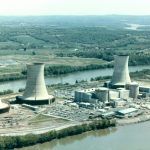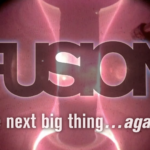What’s next for the NRC: A conversation with Allison Macfarlane
By Bulletin Staff | August 13, 2012
Sworn in as chairman of the Nuclear Regulatory Commission a month ago, Allison Macfarlane is an expert on nuclear waste and the first geologist to serve on the commission. Before beginning her one-year term as the NRC’s 15th chairman, Macfarlane was an associate professor of environmental science and policy at George Mason University, as well as an affiliate of MIT’s Program in Science, Technology, and Society and Harvard University’s Belfer Center for Science and International Affairs.
Macfarlane’s research has focused on environmental policy and international security issues associated with nuclear energy. From 2010 to 2012 she was a member of the Blue Ribbon Commission on America’s Nuclear Future, a panel appointed by the Obama administration to conduct a comprehensive review of policies for dealing with high-level nuclear waste and to recommend a new strategy. She is co-editor of Uncertainty Underground: Yucca Mountain and the Nation’s High-Level Nuclear Waste, which explored technical issues at the proposed waste disposal facility in Nevada.
Macfarlane chaired the Bulletin‘s Science and Security Board from 2008 until May of this year, when she was chosen to lead the NRC, and has authored numerous articles for the Bulletin over the years. Obama did not meet with Macfarlane before or after nominating her, but she has had a busy schedule of meetings and tours of nuclear facilities. We spoke with her about her new work at the NRC.
BAS: It’s no secret that the NRC chairman you replaced was often at odds with his four fellow NRC commissioners. How is your approach different?
Macfarlane: I’ve begun to establish a collegial and collaborative environment here, at least for my office and my interactions with the other commissioners. On my first day here, even before I was sworn in, I met with the four other commissioners for an hour each, and we had an excellent discussion. We’re continuing to meet on a regular basis, and my staff is working with their staff. I bring my academic approach to the job, which is to treat my colleagues as peers.
BAS: Some people were worried that, as an academic, you wouldn’t have the bureaucratic experience for the job.
Macfarlane: The way the commission operates, at this level, is like an academic department. You have a bunch of faculty and one of them is chair. You offer leadership in terms of policy directions, but your colleagues are equals in terms of their knowledge and capabilities. I don’t know what happened in the past, so I’m just approaching it in the only way I know how.
This ends your free preview of the Interview. The full Interview will appear in the November/December 2012 issue of the Bulletin of the Atomic Scientists.
Together, we make the world safer.
The Bulletin elevates expert voices above the noise. But as an independent nonprofit organization, our operations depend on the support of readers like you. Help us continue to deliver quality journalism that holds leaders accountable. Your support of our work at any level is important. In return, we promise our coverage will be understandable, influential, vigilant, solution-oriented, and fair-minded. Together we can make a difference.
Topics: Nuclear Energy, Opinion















